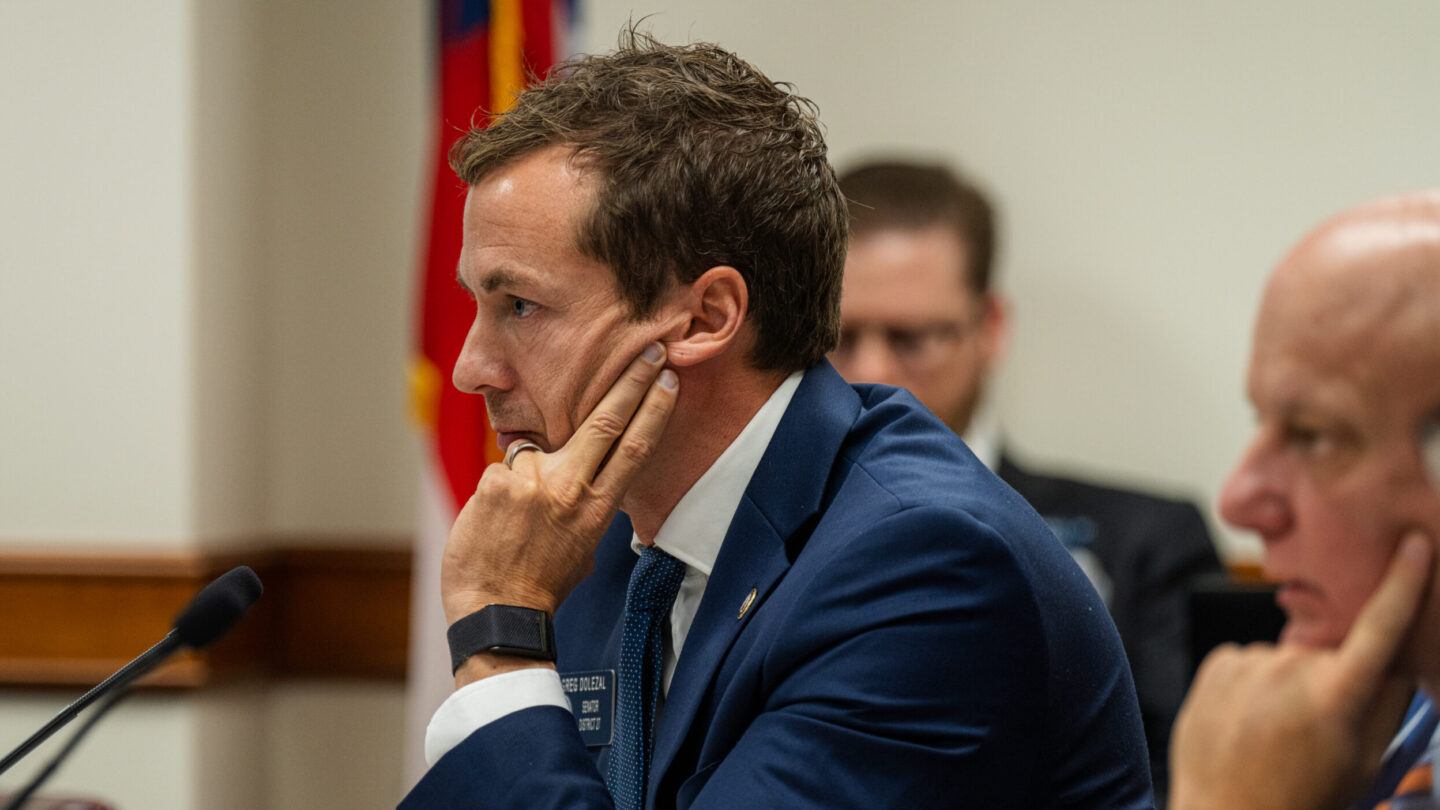Republican lawmakers in the Georgia Gold Dome backed a contentious trio of library laws this week that have parents, legislators and professional librarians divided.
One of the bills, Senate Bill 154, would allow school librarians to be criminally prosecuted for distributing material deemed “harmful to minors,” as currently defined in Georgia law.
Another bill, Senate Bill 365, would give parents more insight into what their children check-out from public school libraries.
The third would create a new “restricted” category for school materials with “sexually explicit” content; younger students would not have access, and older students would need parental permission: Senate Bill 394.
The triumvirate of library restrictions were sponsored by state Senators Greg Dolezal and Clint Dixon.
The bills are the latest phase of regulations that opponents say mark an anti-LGBTQ riptide in Georgia–they say the language about “sexually explicit material” disproportionately impacts books about LGBTQ themes.
“This isn’t about the books, this isn’t about the kids,” said Bentley Hudgins, Georgia’s State Director for the Human Rights Campaign. “This is a concerted, well-funded effort to completely remove LGBTQ+ people from public life.”
As someone who grew up gender non-binary in southeast Georgia, Hudgins fears the impact of this kind of legislation.
“When we talk about the impact that anti-LGBTQ rhetoric and legislation have, I know that personally,” they continued. “I got body slammed in the middle of a hallway, I got beat up on the playground, I got cornered in the bathroom.”
These are not the only bills that Hudgins testified against at the capitol this week. House Bill 936, another bill pushed by conservative lawmakers, would require public school restrooms to be designated for exclusive use by biological males or females, no matter their gender identity or expression.
Not everyone agrees that the recent crop of library restrictions target LGBTQ folks.
“I’ve been working for seven years on the pornography in the books,” said Rhonda Thomas, a conservative education advocate who supports the bills. “I believe a lot of people have no clue how bad these books are.”
Thomas helped found the group Georgians for Responsible Libraries and went to the Gold Dome to support all three of this week’s library restrictions, testifying in favor of S.B. 154. It would charge those who “knowingly” distribute “harmful materials…guilty of a misdemeanor of a high and aggravated nature.”
According to the bill’s sponsor, Sen. Greg Dolezal, the bill merely applies a pre-existing standard to school libraries. The current law exempts them from repercussions for distributing material that meets Georgia’s legal definition of “harmful to minors.”
“This is about exploiting our kids sexually,” Thomas continued. “I feel like that’s a tagline to throw everyone off: ‘putting librarians in jail. That’s not our intention. Our intention is to protect the kids.”
Thomas also said the library bills are necessary to ensure parents know what materials their kids can access.
However, according to Nan Brown, co-advocacy coordinator for the Georgia Library Media Association, parents can already do that. All they have to do is use their child’s student ID and password.
Brown, who has been a librarian for almost 20 years, testified against S.B. 365 earlier this week. In part with the bill, schools would be required to email parents whenever a child borrows library material if that parent chooses.
Brown said she does not necessarily take issue with the spirit of the legislation, “Especially for elementary kids. Then you know they checked it out; you know what to look for.”
Nonetheless, she said bills like S.B. 365 would have a “chilling effect”; librarians would avoid showcasing the kinds of books that have prompted local and national scrutiny, fearing the legal ramifications.
“The books that are pulled or not purchased in the chilling effect are books about marginalized communities,” Brown continued. “And those are the ones most likely to be limited in their access to materials outside a library.”
All three of this week’s library laws will move onto the Senate Rules Committee.









